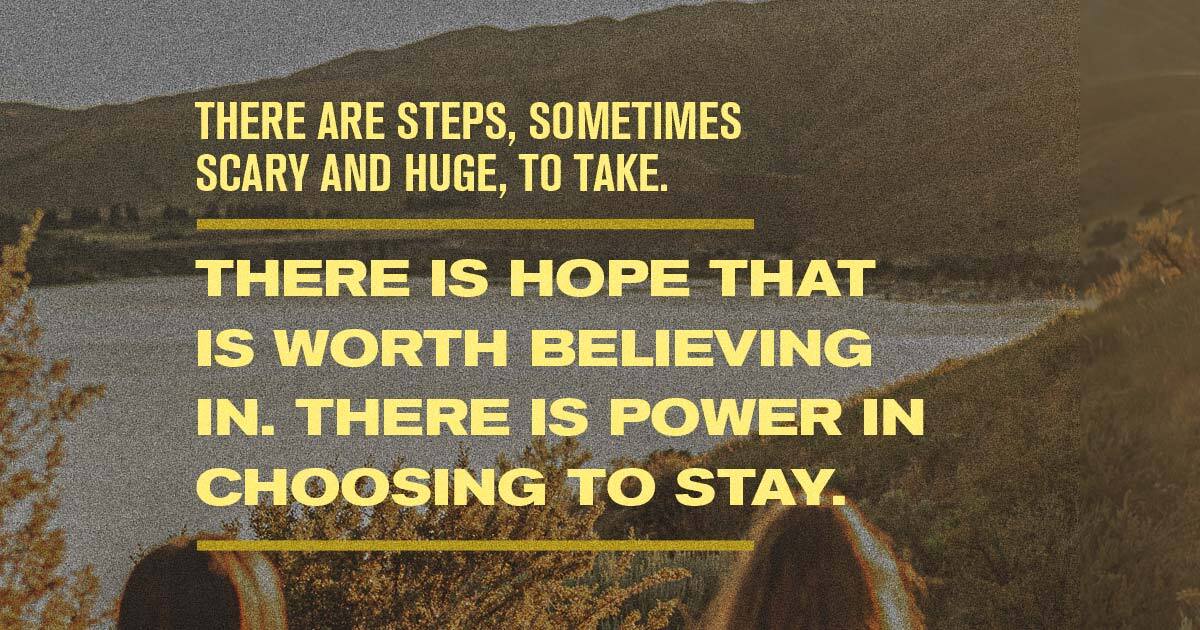Post-Traumatic Stress Disorder.
I was stunned when I heard the diagnosis spoken in such a casual, matter-of-fact manner. Surely, there was a mistake. Wasn’t that something only war veterans dealt with? PTSD wasn’t something I, a young mother who seemed to have a perfect life, could have, was it? The diagnosis of anxiety and depression were easy to understand—as I had faced and managed those since my teenage years—but PTSD? That felt like a whole other ballgame in the league of mental health.
In retrospect, I had fallen into the comparison trap. I had made assumptions about my trauma and abuse, deciding ultimately that they weren’t “as bad” as what others experienced. Which meant I didn’t deserve or need help healing or treating them. This, of course, was not true, but my diagnosis of PTSD came with a steep learning curve.
Here’s what I learned:
PTSD affects people beyond war veterans.
My experience with trauma is both valid and real.
There are words for what I was experiencing and it was not just “all in my head.”
There are coping skills to manage flashbacks and episodes of dissociation.
I am worthy of the time it took to receive the help I needed.
And lastly, one of the biggest lessons I learned is that PTSD is not a personal failure.

I assumed I was weaker somehow and that was why I developed PTSD. On the hard days, when flashbacks consumed my energy, I felt like a failure. But having PTSD does not mean I have failed or that I am weak. I am, in fact, strong because I wake up every day choosing to stay. I am strong for educating myself and engaging in coping skills to manage my symptoms. And despite having PTSD, I have value.
“All human beings have value. I am a human being. Therefore, I have value.” This is a mantra I created with the help of my therapist. These words have allowed me to challenge feelings of worthlessness as they arise when I find myself drowning in depression, anxiety, or PTSD. They are a life raft, a beacon of hope when I am fooled into believing ending my life is the only way out of the suffering, the endless nightmares, and the terrifying flashbacks.
There are steps, sometimes scary and huge, to take. There is hope that is worth believing in. There is power in choosing to stay.
You are not a burden. The heavy you carry deserves to be shared, to be seen, to be known. We encourage you to use TWLOHA’s FIND HELP Tool to locate professional help and to read more stories like this one here. If you reside outside of the US, please browse our growing International Resources database. You can also text TWLOHA to 741741 to be connected for free, 24/7 to a trained Crisis Text Line counselor. If it’s encouragement or a listening ear that you need, email our team at [email protected].
Serena
Thank you. 💖💜
Erika
I distinctly remember when I was diagnosed feeling like they must have it wrong. And they were so adamant. Then we eent through talking of my traumas and suddenly a light shone on why I felt the way I do. Just knowing that there is a reason was life changing for me. Yiu are not broken.
Kaitlin
I remember my therapist discussing the possibility that I had PTSD. I refused to believe it for a year and a half – I didn’t want to identify with PTSD because that was something soldiers got or someone who has been through something incredibly traumatic. My trauma could never compare to that of someone who has been in war or in enemy territory. I had been conditioned through out my life to downplay and question the validity of my feelings. In a way, my trauma was my fault so the consequences did not merit examining – it was deserved, you moved on and if you could not then it was your own personal failure to thrive as a functioning person. I remember that I was getting a massage and the massage therapist asked me to relax. She soon became frustrated with me as I tensed and flinched more and more until she asked, “can you relax??” I pushed back tears because I realized that I was always on guard, always ready to run and always scared. It’s exhausting always looking around the corner and bracing and preparing for something awful to happen. Sleep is difficult because how can you close your eyes when you never feel safe and your heart is always racing? Sometimes PTSD doesn’t come from just one event. It can happen when repeated traumatic events accumulate over time. I’m thankful that I have been given the tools from my therapist, physicians, friends and support groups, to overcome the flashbacks that come with PTSD. Thankfully I am more aware of how to manage the disassociation when it happens. I am still working to feel safe, even with 3 dogs who guard me as I sleep, but I will get there. I don’t share because mental illness is “trendy,” or for sympathy. I share because discussing mental health should be as normal as discussing having heartburn. Additionally, I spent a year and a half dodging my PTSD symptoms alone because I just could not come to terms with the diagnosis. I know that I am much more than my diagnosis but I wish I had spent that time working on it so I would have been that much more ahead in managing it.
TWLOHA
Kaitlin,
Thank you for sharing this. Thank you for being willing to explore this with us. We’re so glad you found these words and were able to connect with them, to feel seen and known. We are grateful for you, we are grateful for your vulnerability and your hope for healing. You deserve it.
With Hope,
TWLOHA